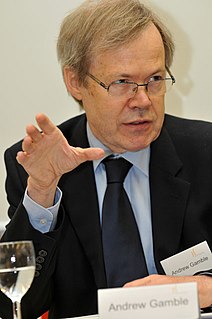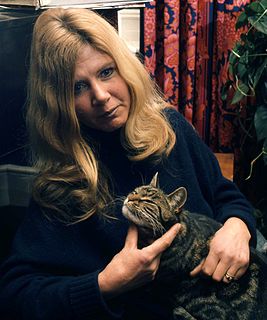A Quote by Robert Bulwer-Lytton, 1st Earl of Lytton
Related Quotes
The Greek idea of fate is moira, which means "portion." Fate rules a portion of your life. But there is more to life than just fate. There is also genetics, environment, economics, and so on. So it's not all written in the book before you get here, such that you don't have to do anything. That's fatalism.
Meetings are held because men seek companionship or, at a minimum, wish to escape the tedium of solitary duties. They yearn for the prestige which accrues to the man who presides over meetings, and this leads them to convoke assemblages over which they can preside. Finally, there is the meeting which is called not because there is business to be done, but because it is necessary to create the impression that business is being done. Such meetings are more than a substitute for action. They are widely regarded as action.
Our fate is something which exists outside ourselves, and which once revealed expresses the meaning of our lives. Apart, however, from soothsayers who claim to have a means of foretelling exactly what will befall us, this kind of fate is only normally revealed after a life has ended. Only then can the meaning of that life be understood.
Be ruthless about protecting writing days, i.e., do not cave in to endless requests to have "essential" and "long overdue" meetings on those days. The funny thing is that, although writing has been my actual job for several years now, I still seem to have to fight for time in which to do it. Some people do not seem to grasp that I still have to sit down in peace and write the books, apparently believing that they pop up like mushrooms without my connivance. I must therefore guard the time allotted to writing as a Hungarian Horntail guards its firstborn egg.
Life without sex might be safer but it would be unbearably dull. It is the sex instinct which makes women seem beautiful, which they are once in a blue moon, and men seem wise and brave, which they never are at all. Throttle it, denaturalize it, take it away, and human existence would be reduced to the prosaic, laborious, boresome, imbecile level of life in an anthill.
The one resolution, which was in my mind long before it took the form of a resolution, is the key-note of my life. It is this, always to regard as mere impertinences of fate the handicaps which were placed upon my life almost at the beginning. I resolved that they should not crush or dwarf my soul, but rather be made to blossom, like Aaron's rod, with flowers.
Of no distemper, of no blast he died,
But fell like autumn fruit that mellow'd long:
Even wonder'd at, because he dropp'd no sooner.
Fate seem'd to wind him up for fourscore years;
Yet freshly ran he on ten winters more;
Till like a clock worn out with eating time,
The wheels of weary life at last stood still.



































